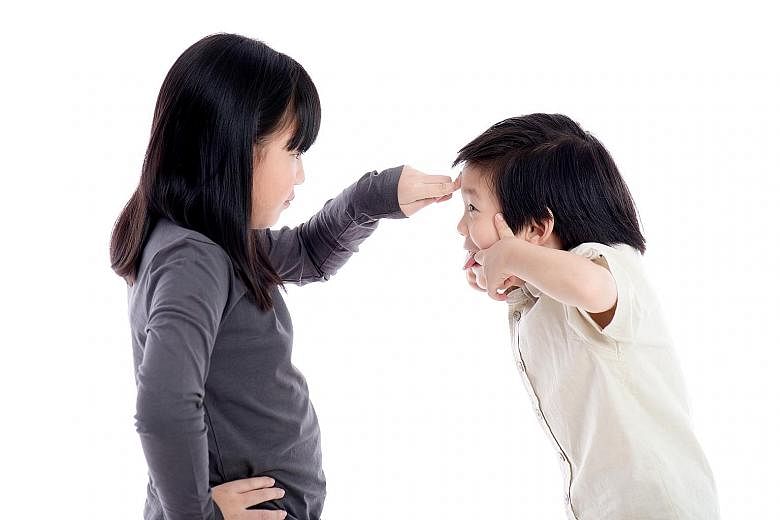NEW YORK • Kids argue at school, push one another after a foul on the court and ignore a former best friend forever.
And parents often roll their eyes when these conflicts happen, dismissing the incidents as one-time.
But the way kids handle conflict with peers may have major long-term health repercussions.
New research from the University of Virginia shows that ramifications from schoolyard flare-ups may be tied to premature ageing and other issues - even tumours, arthritis and cancer - later in life.
"It's easy for parents to think these adolescent relationships are trivial, that they don't mean much, that it's all passing," said Mr Joseph Allen, a professor of psychology at the university who led the study.
"This is to say they aren't trivial."
The study, published in the journal Development And Psychopathology, found that a protein in the bloodstream - that has been associated with development of cancerous tumours, osteoporosis, arthritis and other problems associated with ageing - was present at high levels in the bloodstreams of 28-year-olds who experienced chronic social conflict beginning as early as age 13, but not among those who handled conflict well.
Prof Allen and his team of researchers started following 127 middle-schoolers in 1988.
They asked the students and their peers how well they managed conflict and then observed the students interacting with their close friends.
The researchers followed up with them throughout the years.
When the students were 28, the researchers took blood samples.
Those who had trouble coping with conflict when they were younger had higher levels of the protein (called interleukin-6) in their blood.
"There's enough research in adulthood that links stress to health. That made us wonder about adolescence," Prof Allen said.
"Our interest was really: 'Is it strong enough that it affects our biology, that it has a lasting impact?' "
One way the team measured conflict stress and management was to ask 13-year-olds in the study to respond to hypothetical situations.
For instance, if they were playing basketball and another team made fun of them in a mean way, what would they do?
The researchers rated them based on how they said they would defuse the conflict.
Punch somebody? Not a good rating. Pretend they did not hear the comment? A so-so rating.
But choosing to shut down the conversation with a comment, without causing more turmoil, would receive the highest rating.
At 16, the teens were asked whether they were able to get over conflicts easily and whether they managed disagreement with friends well.
And at 21, they were studied interacting with a romantic partner.
They were asked to both determine where they disagreed. Then researchers looked at how much hostility was directed at them by the partner.
Those who did not handle conflict well at younger ages and those who had difficult romantic relationships later were found to have a higher protein marker.
"We have reason to think the immune system and stress system are particularly malleable and open to influence in teen years," Prof Allen said.
"These things that have them stressed in adolescence have long-term impact."
To help children with these stressors, parents should model good conflict management and teach their kids that they can still remain friendly with people they disagree with.
"Let them disagree with you, but rein in their hostile behaviour," Prof Allen said.
"When teens are worried about (peer conflict), that's exactly what they should be doing.
"We need to take this seriously. It's not something to be ignored."
WASHINGTON POST

